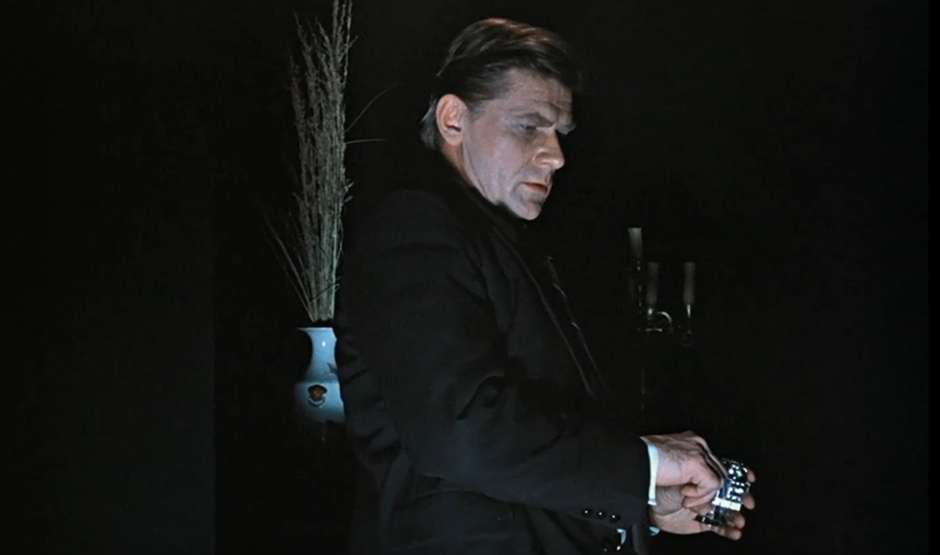One Life (2023) Review
- Benjamin May
- Jan 8, 2024
- 3 min read
Updated: Jan 9, 2024
Nicholas Winton is an octogenarian who has devoted much of his life to humanitarian efforts. After his wife goes on a holiday, he is left alone with his memories. As a young man in the late 1930’s, Winton travelled to Prague, where the desperate situation of the Jewish children there moved him deeply. Determined to help them escape the advancing Nazi’s clutches, he devised a plan to transport hundreds to England. Against all odds, Winton and his associates persevere- but will the public ever know of his bravery?
James Hawes' 'One Life' is an uneven drama retelling a fascinating true story. The film is divided into two parallel narratives: one following the older Winton in the 1980’s, the other focusing on his younger days in Prague. The former is engaging and full of pathos, thanks to Anthony Hopkins’ thoughtful, nuanced performance. He carries the film squarely on his shoulders, subtly showing Winton’s vulnerability and inner turmoil. As he recalls his past, the emotional impact is devastating, Hopkins masterfully displaying the torment the man is going through. As he did in ‘King Lear’ and ‘The Father’, Hopkins creates a compelling, sympathetic person, that one cannot help but root for.
The flashback sequences, however, are oddly underwhelming, despite the dramatic potential of the historical events. In contrast to the 1980’s narrative, Nick Drake and Lucinda Coxon’s screenplay eschews subtlety and depth, and their dialogue is often stilted and expository, telling rather than showing the characters’ emotions and conflicts. Moreover, the film fails to explore the complex moral dilemmas and psychological effects of Winton’s mission. Unlike ‘Schindler’s List’, which depicts the horrors of the Holocaust and the guilt of the survivors in an intelligent and respectful way, Hawes’s film glosses over the fate of the children who were not saved and the impact of Winton’s mission.
Nor do we learn much about Winton himself. Why was he motivated to save the children? He claims he is but an ordinary man, though we never learn what compelled him to attempt the extraordinary. Winton’s life was truly remarkable, and to call him a hero is putting it mildly. However, Hawes is just going through the motions, telling his tale without verve or impact. While the scenes involving Winton in the 1980’s are powerful and compelling- due entirely to Hopkins- the film as a whole disappoints.
Furthermore, it suffers from a lack of visual flair and originality. Zac Nicholson’s cinematography is bland and conventional, with dull compositions that lack impact. Lucia Zucchetti’s editing is erratic and disjointed, failing to create a good pace for proceedings. The flashback sequences are often interrupted by abrupt cuts to the present, disrupting the flow and tension of the story. The film wastes the opportunity to showcase the contrast between Prague and London, using costumes and props that look similar and drab. Additionally, Volker Bertelmann’s muted score is ineffective, hindering the dramatic impact of scenes rather than complementing them.
Johnny Flynn is dull and flat as the young Winton, lacking any charisma or courage; though Drake and Coxon’s dialogue didn’t help matters. Conversely, Helena Bonham Carter is excellent as his mother, though deserving of more screen time and attention. Her role could have provided more insight into Winton’s personality and motivation, but the movie neglects to explore their relationship. Romola Garai does strong work as Doreen, convincingly portraying her determination to save the children.
Alex Sharp also impresses as Winton’s associate Trevor, adding some much-needed energy. Jonathan Pryce brings a quiet power to his all too brief scene with the elder Winton, creating a poignant moment. The children involved all give emotive, often devastating performances, compounding the drama of the venture; while Lena Olin is terrific as Grete, Winton’s wife, sharing a fine chemistry with Hopkins. In addition, Marthe Keller shines as Betty Maxwell, in another short but memorable scene.
In conclusion, despite the potential for a rich dramatic piece about the horrors of war and the bravery of Nicholas Winton, ‘One Life’ underwhelms. While Anthony Hopkins is subtle and moving as the elder Winton, Johnny Flynn disappoints as the young version of the character, giving a lifeless performance. The cinematography is generic, there is no tension whatsoever and the score is ineffectual, although supporting actors, such as Lena Olin and Romola Garai, impress greatly. At the end of the day, the film is a missed opportunity, not doing justice to Winton’s remarkable humanitarian efforts. It might be worth watching once, but certainly not twice in a lifetime.








